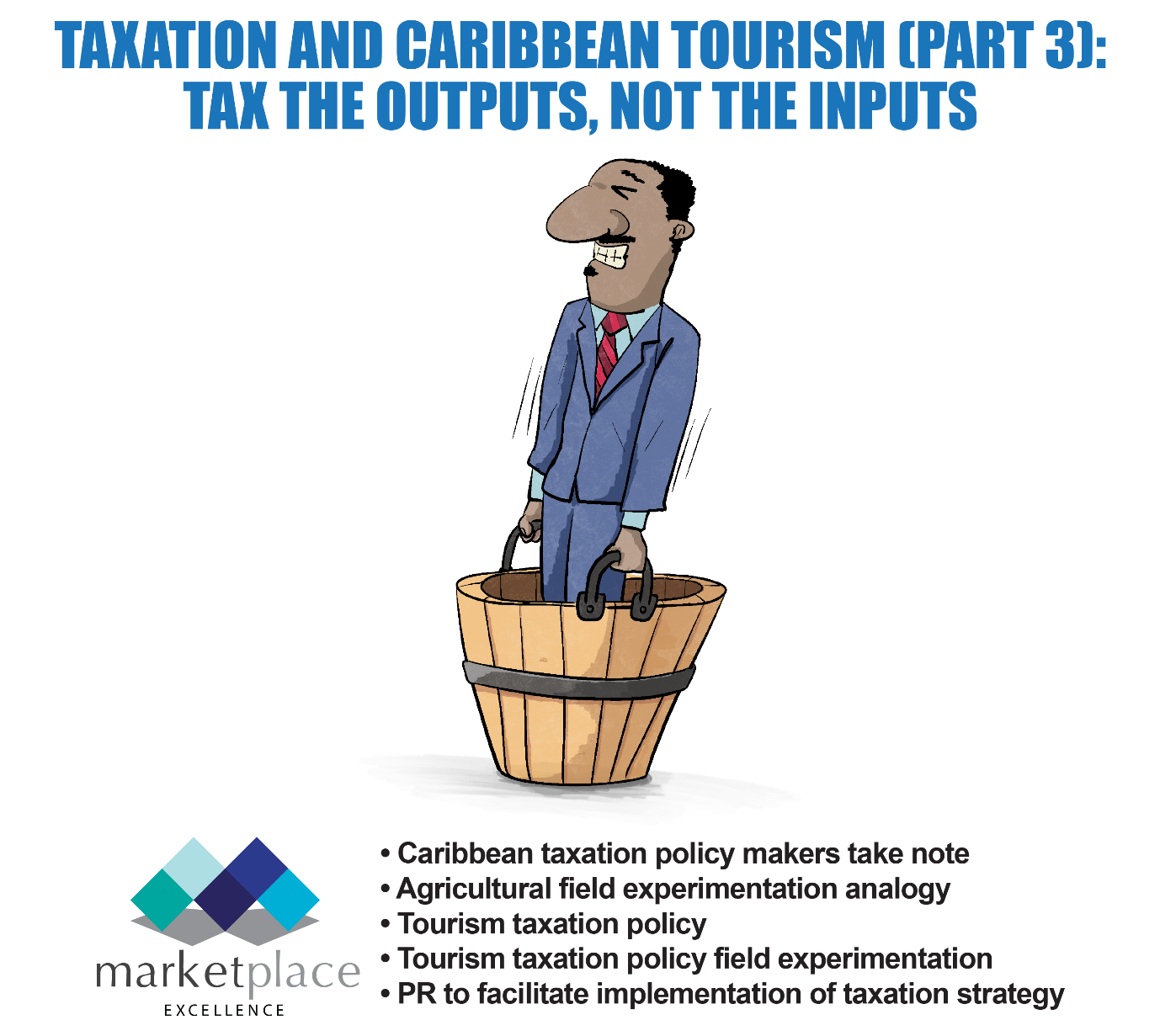“The highest heavens belong to the LORD, but the earth he has given to mankind.” – Psalms 115:16
The third column in this three-part “Taxation and Caribbean Tourism” series concludes with a two-part proposal to (1) optimize our tourism taxation strategy to maximize total tourism spend and; (2) couple it with effective public relations tactics to facilitate the communication of the strategy.
Dr. David Lewis, an international business adviser, in response to the first article of the series, drew my attention to a quote attributed to Sir Winston Churchill: “I contend that for a nation to try to tax itself into prosperity is like a man standing in a bucket and trying to lift himself up by the handle.”
David implied that this sentiment should be indelibly etched as part of the psyche of every Prime Minister, Minister of Finance and senior budget analyst in every CARICOM country.
All of this begs the question: What is an optimum tourism taxation strategy and how can we promote it?
Here is a simple agricultural analogy. Fertilizers provide crops with nutrients like potassium, phosphorus and nitrogen – which energize crops to grow bigger, faster, and to produce more food. However, if you apply too much fertilizer you can kill the plant.
The design and analysis of field experiments is the statistical tool used to determine the optimal mix of fertilizer, soil type, plant variety, spacing, pest control, irrigation et al which will give the maximum plant yield per acre.
Similarly, in tourism taxation we must engage in the design and analysis of field experiments to determine the optimal tourism taxation (outputs and inputs) strategy that will yield the maximum tourism spend per destination.
For example, if you increase input taxes (tax on airfares or cruise ship head tax) you will stifle demand, reduce arrivals and dampen overall tourism spend, but reducing input taxes increases the potential for increasing demand and arrivals and increasing the yield of value-added income and corporate tax, the output taxes.
As the agriculturalists engage in field experimentation to determine the mix that gives the maximum yield per acre, the tourism taxation specialists must also engage in field experimentation to determine the taxation strategy that results in the maximum tourism spend per destination.
It is crucial to adopt a balanced and strategic approach. Rather than burden the tourism sector with input taxes and suppress demand, we must increase demand and collect from the output taxes instead.
By focusing on revenue generated by tourism activities, governments can ensure a fair and equitable distribution of the tax burden while allowing the industry to flourish. This approach recognizes the vital role that tourism plays in contributing to the overall economy and ensures that the industry’s growth potential is not hindered by excessive taxation.
Communication to all tourism stakeholders – governments, airlines, cruise lines, hotels, allied and related businesses, and visitors themselves – is paramount to getting full cooperation and commitment.
Let us implement a tourism taxation experimentation process and engage public relations and communications expertise to share the results and ensure the growth and sustainability of the Caribbean’s golden goose, its tourism sector.
At the same time, we must also continue to implement sales and marketing plans to raise the profile of individual destinations under the attractive Caribbean warm weather brand, an irresistible magnet for visitors seeking both business and pleasure.
Here endeth the three-part series on taxation and Caribbean tourism. Throughout this series, we have explored the importance of optimizing our taxation strategy. By adopting a balanced and strategic approach that focuses on revenue generated by tourism activities, we can ensure the industry’s growth potential is not hindered by excessive taxation. Effective communication with all stakeholders is crucial, however, so we can secure the growth and sustainability of the bread-and-butter tourism sector.

(Dr. Basil Springer GCM is a Change-Engine Consultant. His email address is basilgf@marketplaceexcellence.com. His columns may be found at www.nothingbeatsbusiness.com).
